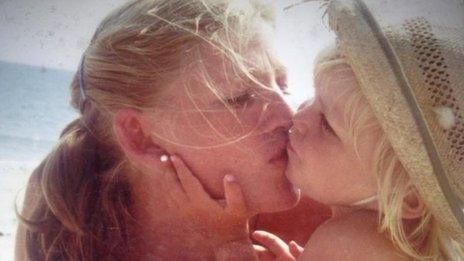Bristol artist Pippa Grace collects stories of motherhood
- Published
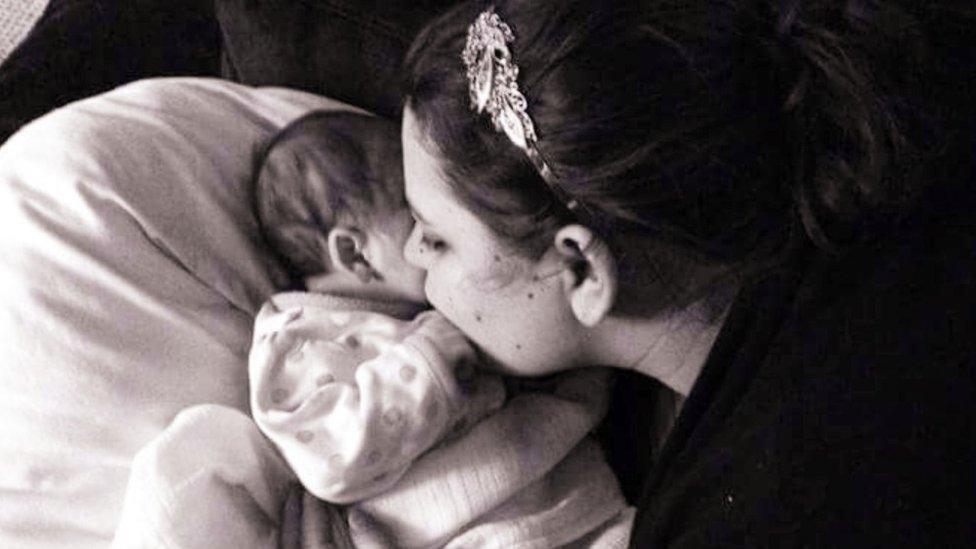
Gemma was adopted as a baby and said her adoptive mother was "the person I see as my mum, as grandmother to my daughter"
An artist who has been collecting stories from women for the past seven years has made a book about a range of women's experiences of motherhood.
Pippa Grace, from Bristol, said as the project "grew and flourished" she realised it was not her project but "belonged to all women".
Since 2015, Ms Grace has added stories from more diverse backgrounds including adoptive, LGBTQ and teenage mothers.
She was inspired by her "mum and nan" who both had postnatal depression.
Pippa Grace said "the seed of this project was born" after her grandmother's death.
She said the anthology, Mother in the Mother, "explored the maternal lineage" of more than 50 women - from "young mums of 17 to grandmothers of 70+".

Elsie's story: Namibia is 'home'
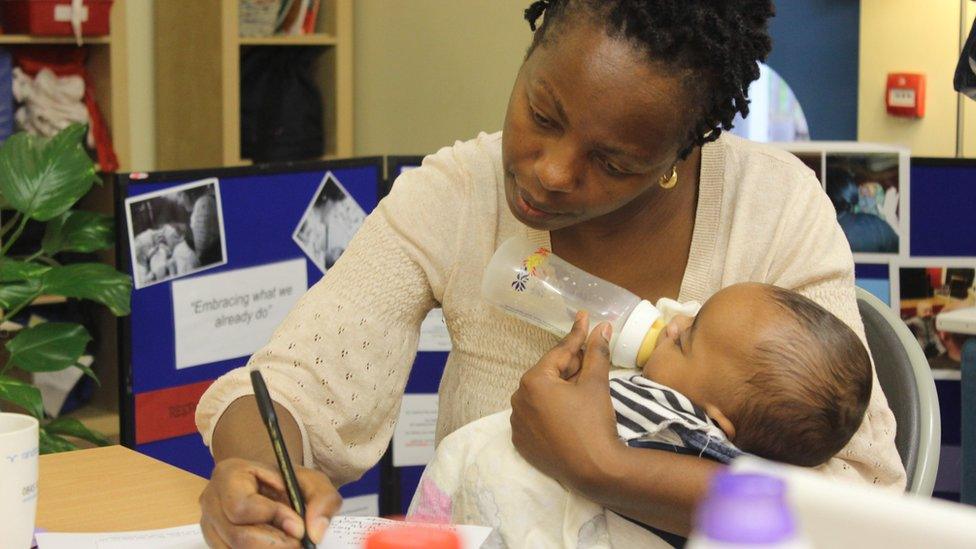
Elsie said when her first baby was born "it took me time to realise that I'm the baby's mother all the time, and that the baby is here all the time"
Elsie said she was 30 when she had her first child and when her son was one, took him to visit her mother in Namibia.
"Even though he was quite big and my mother is quite old, she wanted to carry him everywhere, it was like making up for time.
"We were there for a month and my child could tell this was 'home'. My other children are all keen to see her, they call her KuKu which means grandma."

Rose's story: Queer bisexual mum's 'confused role'
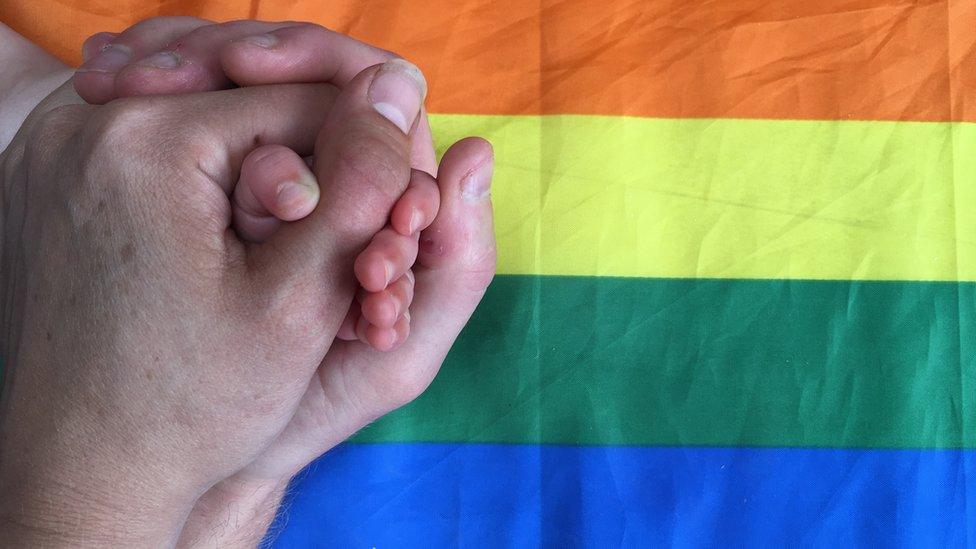
Rose, who describes herself as a queer bisexual woman, said she was "shocked at my response to pregnancy on both a physical and emotional level"
Rose said her now six-month old baby, was "planned and wanted" but she felt "nauseous for the first half of pregnancy and deeply disturbed by my body when I felt a hardening in my tummy".
"I felt my gender and presentation (female/femme) was challenged.
"As a queer woman (bisexual) in a relationship with a man, I felt really confused by our roles and the expectations on us from others, ourselves and societal norms.
"I am still deciphering the roles that gender and sexuality have had in my transition to parenthood."

Zoe's story: 'I claim her'
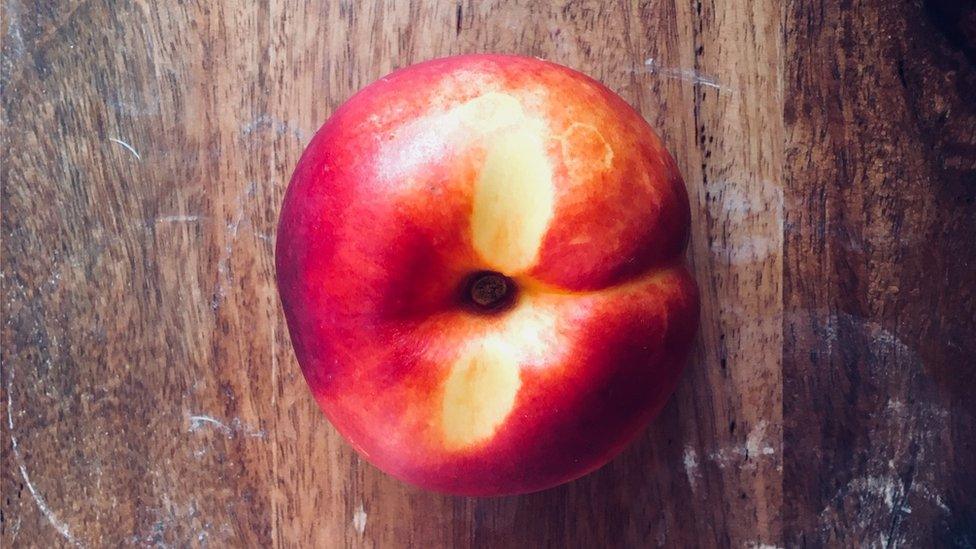
Adoptive mother Zoe picked this image to use in Pippa's book to represent her and said when she first saw her baby in the hospital she was "wearing someone else's baby clothes"
Adoptive mother Zoe said she "wished" her baby "into being" and described the moment she collected her daughter from hospital.
"In the next hour, I claim her. I wrap her like a shellfish in a woollen blanket. When the birth parents come back, we exchange gifts. I offer tea in the hospital room as if I am a host.
"We sit around a birthing bed. We all feed our shared-new-baby and talk for a long time together about dogs we've rescued and re-homed in the past.
"When it happens, it is swift. It's a ceremonial exchange. Time pauses, a space opens and we quickly step in, awaiting our cue, no time to rehearse. Someone certificates. Everyone's lives have taken a different track."
"I say goodbye to my fertility thermometer. I say goodbye to needing and hoping. I am saying goodbye because I am.
I am healed. I am not just a mother. I am her mother."

Gemma's story: Adopted as a baby and becoming a mum
Gemma, who was adopted as a baby, said she did not meet her biological mother until her late teens and said "at first it was lovely to find this mystery person the world says we should be naturally close to - but that soon faded.
"She had not brought me up through my awful teenage years, dealt with tantrums, cared for me when I was sick. So the role of mum and grandmother was the place of my [adopted] mum."

Pippa Grace: Stories within stories within stories
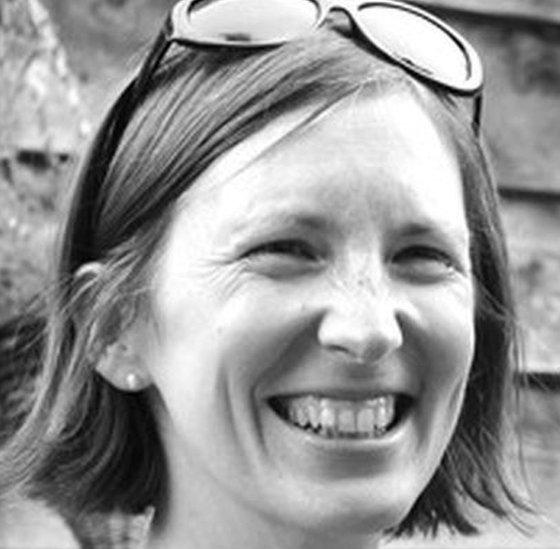
Pippa Grace said the book, Mother in the Mother, was "just a pinpoint in time"
Pippa Grace said: "Mother in the Mother is in itself a maternal space, holding and honouring these stories, keeping them safe. Stories within stories within stories.
"They pack up tight together, and unpack and open out, just like a set of brightly painted wooden matryoshka dolls."

- Published21 October 2019
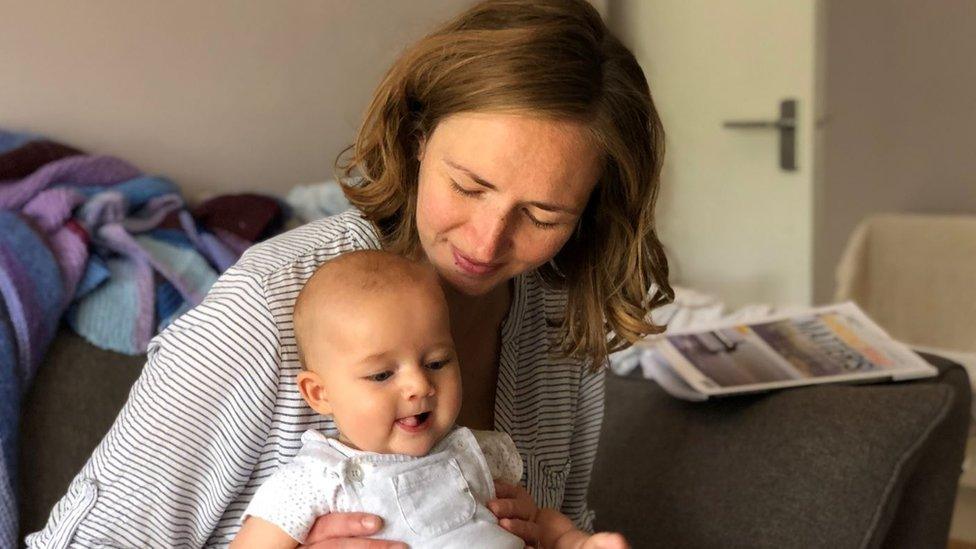
- Published9 January 2018
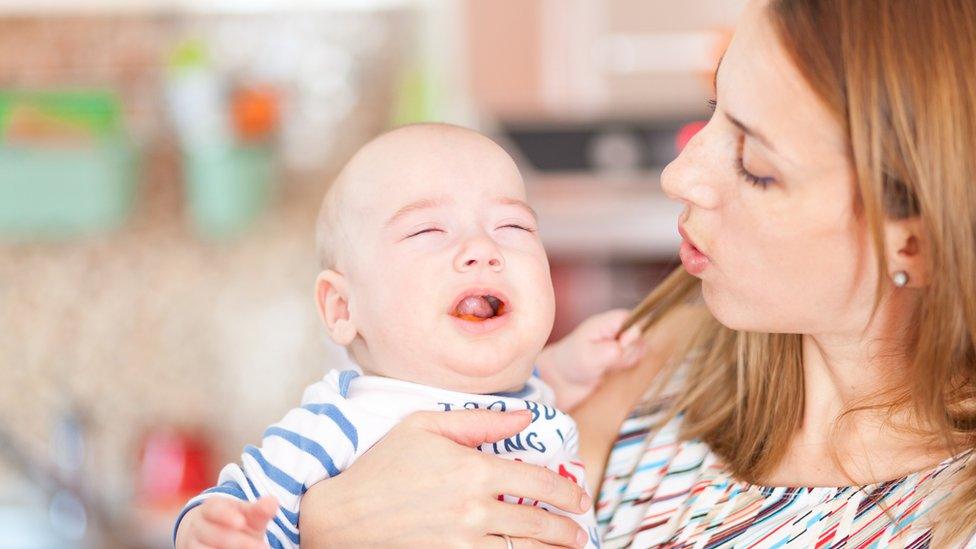
- Published15 March 2015
